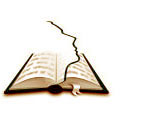|
 |
the wicked.’ To emphasise the effect this overthrow has on the earth, inspired words say, ‘The whole earth is at rest and is quiet.’ But then our minds are taken to the parable itself. ‘Yea the fir trees rejoice at thee and the cedars saying, …Hell from beneath is moved for thee to meet thee at thy coming. It stirreth up the dead for thee, even all the chief ones of the earth … All they shall speak and say unto thee, Art thou also become weak as we are? Art thou become like unto us?’ These verses are considered to be saying that there is somewhere after death where we are conscious and can reason, even gloat. Please explain! |
First of all this is a parable, a story with a meaning. It was written to emphasise that Babylon the proud and beautiful nation could be brought low. At the time of this parable being written by the prophet Isaiah, Babylon was still standing. This story had a prophetic meaning.
There are two things to note. First of all it is the trees that are looking into ‘the grave’ and seeing and hearing these things happening. They see the grave going to meet Babylon. They also note that rulers and thrones that have previously passed from the scene of action are seen as rising up to greet Babylon that is about to suffer the same fate as they did in the pattern of history.
Secondly these dead rulers and kings are then heard to speak, asking Babylon if she has become as weak as they are now. |
 |
It is clear from the context that a parable about trees feeling emotion and observing and recording what happens in the grave, cannot be used as proof of a doctrine. Also it is Babylon that is foretold as about to become weak. Babylon was a system, a nation and a kingdom. There is nothing in this parable referring to individuals being alive and conscious after death.
The trees do not have a soul either that is able to report what happens around them. This is in no way a proof of pantheism or of an overarching divine world-soul of which we are all part. Isaiah 44: 14-20 describes how the woodman chops down a tree. |
|
Previous verses talk about how the carpenter makes beautiful homes with the wood. The woodman uses it for firewood to warm himself, then bakes bread with its heat, and then with what is left he makes himself a god, to which he bows down and worships, ‘deliver me, for thou art my god’.
A tree has no intelligent life. It cannot respond. Verse 20 says that to believe that it can respond is to have a lie in our right hand. God says of the one who believes like this and makes the tree a god - ‘He feedeth on ashes; a deceived heart hath turned him aside, that he cannot deliver his soul not say, is there not a lie in my right hand?’
Job 14:22 says, ‘His flesh upon him shall have pain, and his soul within him shall mourn.’ This reads as if we have ‘soul’ separate from our body. Please explain! |
 |
The word used here for ‘soul’ is the Hebrew word ‘nephesh’. It is a word to describe ‘yourself’, ‘herself’, or ‘himself’. This is another way of saying ‘He shall be sad.’ Another example of this is found in the 23rd Psalm – ‘He restoreth my soul.’ This means that the Lord restores ‘me’.There is no sense in which this word implies a ‘soul’ within us, living a parallel life to our everyday lives. Here is another example, ‘The highway of the upright is to depart from evil; he that keepeth his way preservest his soul.’ Proverbs 16:17. In other words, he preserves himself. |
|
<< Back | Page 1 | Page 2 | Page 3 | Page 4 | Page 5 | More >>
[ Home ][ About Us ][ Lonely Questions ][ Contact Us ]
Copyright © 2008 deathandbeyond.org.uk |
